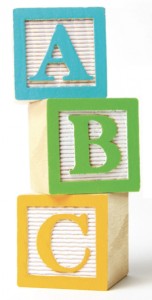
A client shared this with me, and I share it with you: some sound, stern relationship advice from the great Noël Coward, in the form of an invaluable letter he sent to his good friend, Marlene Dietrich, in 1956. He was replying to a recent, downbeat missive from Dietrich, in which she had detailed the latest in a long line of depressing “episodes” involving her on-off lover of a few years, Yul “Curly” Brynner. Coward clearly couldn’t bear to see her suffer any longer.
 Are you with the right mate? Is there some MORE right person waiting for you somewhere? And if you could find that one special person, would you then, finally, find fulfillment and happiness?
Are you with the right mate? Is there some MORE right person waiting for you somewhere? And if you could find that one special person, would you then, finally, find fulfillment and happiness?
 Although we cannot always anticipate or avoid situations that we know have the power to undermine relationships (such as chronic exposure to non-marital stress — medical, financial, and so forth), much can be noticed and considered when we set out to make our choice to commit for the long haul. We know, for example, that couples who share core values and goals have a greater chance for a happy long-term relationship.
Although we cannot always anticipate or avoid situations that we know have the power to undermine relationships (such as chronic exposure to non-marital stress — medical, financial, and so forth), much can be noticed and considered when we set out to make our choice to commit for the long haul. We know, for example, that couples who share core values and goals have a greater chance for a happy long-term relationship.
 Based on Elizabeth Bernstein’s Wall Street Journal article,
Based on Elizabeth Bernstein’s Wall Street Journal article,  A new State of Our Unions report (entitled “When Baby Makes Three”) from the National Marriage Project (NMP)* at the University of Virginia and the Center for Marriage and Families draws on data from three nationally representative surveys (2,870 couples in total) to answer four important questions about contemporary family life:
A new State of Our Unions report (entitled “When Baby Makes Three”) from the National Marriage Project (NMP)* at the University of Virginia and the Center for Marriage and Families draws on data from three nationally representative surveys (2,870 couples in total) to answer four important questions about contemporary family life:
 From marriage researcher Dr. John Gottman’s experience working with thousands of couples, he determined that a long-term reationship is likely to be successful if, very simply, there are more good moments than bad moments. (He speaks of a ratio of at least 5 positive to 1 negative interactions as a predictor of a satisfying relationship.) Where the “emotional bank account” has been fed with a multitude of generous acts, kind words and thoughtful behaviors, negative interactions are more likely to be dealt with with greater equanimity or let slide.
From marriage researcher Dr. John Gottman’s experience working with thousands of couples, he determined that a long-term reationship is likely to be successful if, very simply, there are more good moments than bad moments. (He speaks of a ratio of at least 5 positive to 1 negative interactions as a predictor of a satisfying relationship.) Where the “emotional bank account” has been fed with a multitude of generous acts, kind words and thoughtful behaviors, negative interactions are more likely to be dealt with with greater equanimity or let slide.
 Different people express love differently. They also tend to crave those same expressions of love from their partners, and often find themselves disappointed.
Different people express love differently. They also tend to crave those same expressions of love from their partners, and often find themselves disappointed.